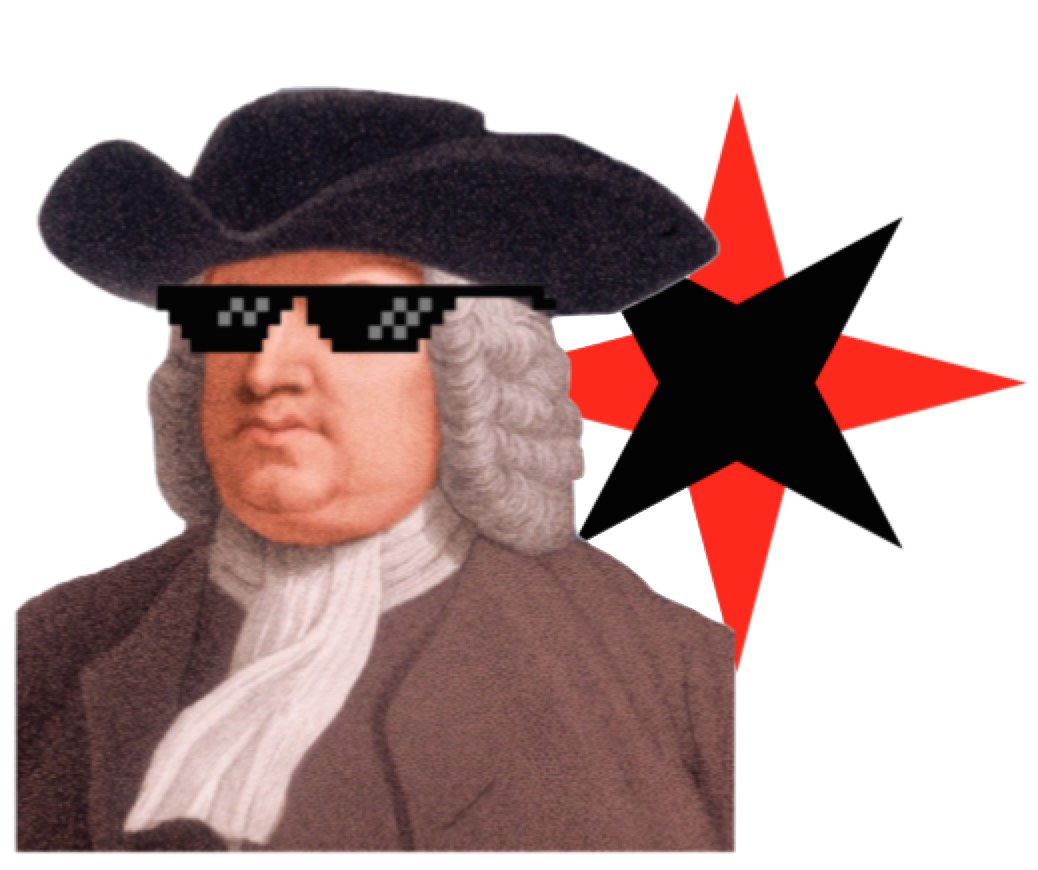William Penn
William Penn was born on October 14th, 1644 in London to Sir William Penn and Margret Jasper. Penn went to school at Chigwell School in Essex, and attended Oxford in 1660. He was later expelled from Oxford for criticizing the Church of England. After that, his father sent him to France, where he studied theology at the Protestant Academy in Saumur. When he returned back to England in 1664, he briefly studied law.
Penn went to Ireland to manage some of his fathers property. While he was there, he met Quaker preachers who encouraged him to join their faith. After becoming Quaker, he began to fight for freedom of the religious group. He then wrote and published several works about his newly found faith, the first of which was "The Sandy Foundation Shaken". He was jailed for blasphemy not long after the work was published. While in prison, he wrote "No Cross, No Crown", another work based on his religious beliefs. He was eventually released in 1669, and continued to promote Quaker teachings. He was arrested on many occasions, on charges of illegal preaching and inciting a riot. He later married a Quaker woman in 1672 named Gulielma Maria Springett. The couple would had 3 children together.
By the 1670s, William had become quite an important figure in the quaker community. In 1675, he was asked to settle a dispute between Quaker property owners in New Jersey. After settling the dispute, using his legal knowledge and leadership skills, he was chosen to create a Quaker colony in America. This colony would later become Pennsylvania.
Pennsylvania was a great success in some ways, but in other ways, it was home to quite a bit of trouble. While you did have the freedom of religion in Pennsylvania, you also had to deal with the political and religious conflicts that came with that.
In 1684, Penn returned to England, where his wealth grew and fell with changes in royal rule. He traveled back to Pennsylvania again and stayed there from 1699 and 1701. He revised its constitution during that time. After his stay, he traveled back to England, where he would spend the rest of his life. He left the colony under the management of his secretary, James Logan, and various deputy governors.
In 1696, Penn married his second wife, Hannah Callowhill. (His first wife passed away in 1694.) They had 7 children together. His wife aided him in his proprietorship of Pennsylvania in his later years, especially after he experienced a stroke in 1712. Penn died in Ruscombe, in the county of Berkshire, England, on July 30, 1718.
Sources:
